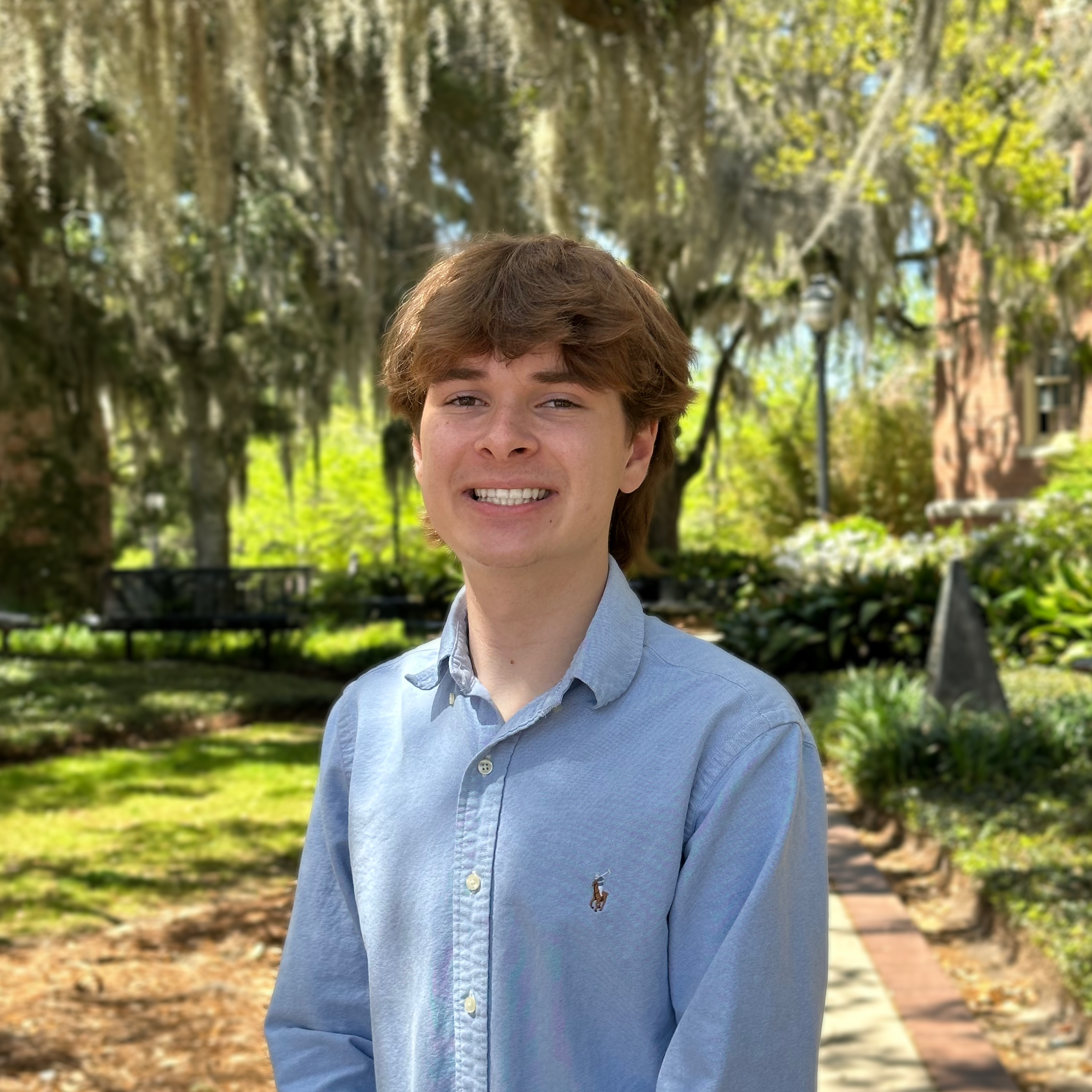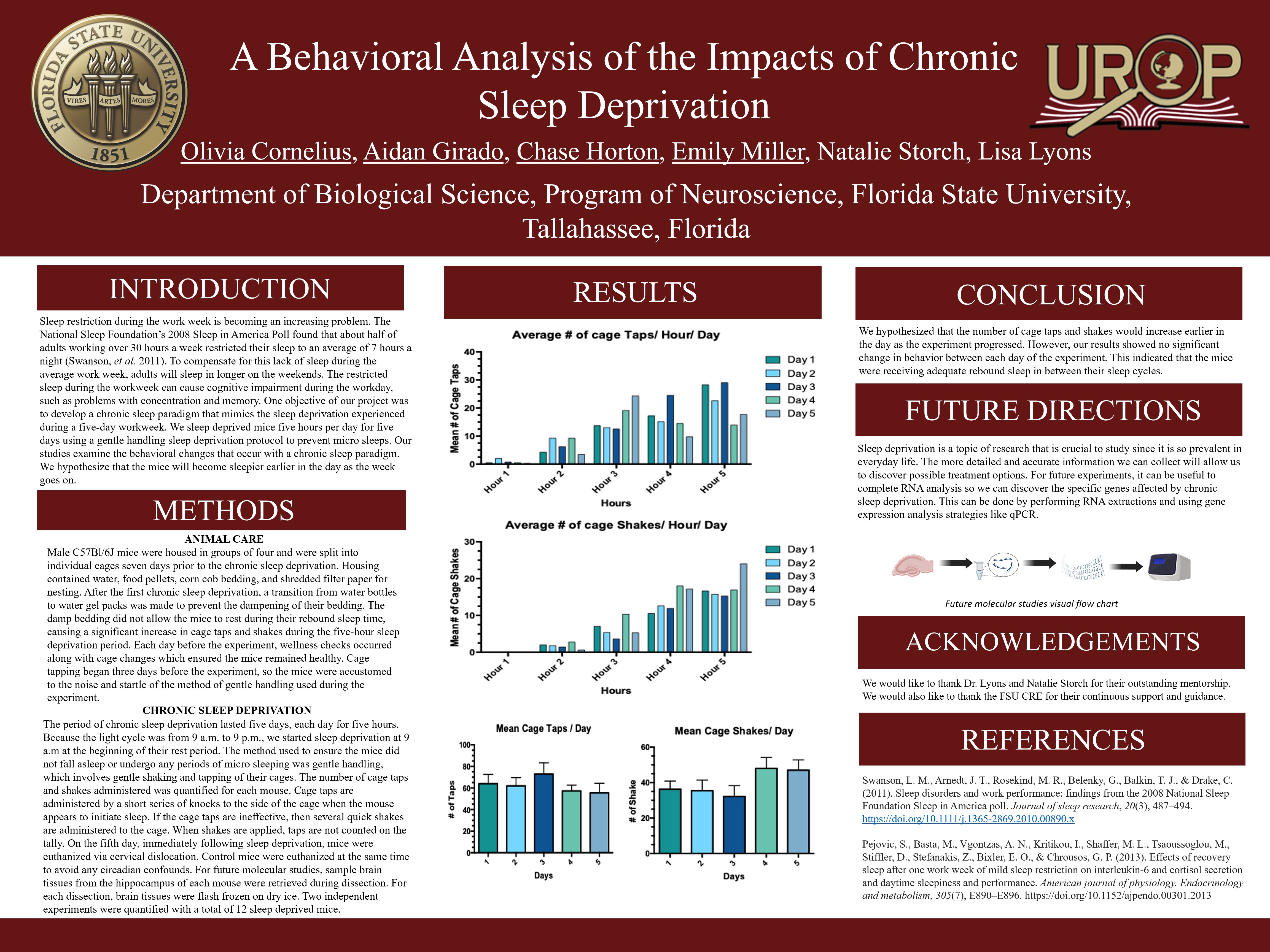Research Symposium
24th annual Undergraduate Research Symposium, April 3, 2024
Chase Horton Poster Session 4: 2:45 pm - 3:45 pm /150

BIO
Hi, my name is Chase Horton and I'm from Pensacola, Florida. I am a second-year student at Florida State University majoring in Biological Science. I am on the pre-dental track with aspirations of becoming an orthodontist.
A Behavioral Analysis of the Impacts of Chronic Sleep Deprivation
Authors: Chase Horton, Lisa LyonsStudent Major: Biological Science
Mentor: Lisa Lyons
Mentor's Department: Biological Science Mentor's College: College of Arts and Sciences Co-Presenters: Olivia Cornelius, Aidan Girado, Emily Miller
Abstract
Sleep deprivation is a global health issue that is especially prevalent during the work week. A significant amount of the working population restricts their sleep to seven hours or less a night during the work week. This sleep restriction has been linked to cognitive impairment during the workday, leading to issues related to memory and performance. We have developed a chronic sleep paradigm to mimic the sleep deprivation experienced during the 5-day work week. We hypothesize that the mice will progressively get sleepier earlier in the day as the week goes on. For this experiment, mice were split into individual cages containing water, food pellets, and shredded filter paper bedding. Transition from water bottles to water gel packs occurred after one of the preliminary chronic sleep deprivations to avoid wetting the cage bedding. Each chronic sleep deprivation experiment lasted five days for 5 hours a day with two independent experiments performed. The method used to prevent sleeping was gentle handling through cage taps and cage shakes. After the experiment, brain tissues were collected from each mouse in order to perform future molecular studies. We found that the mean cage taps and shakes did not show any significant difference throughout the experiments. The results indicate that the mice were getting sufficient rebound sleep in between the days of sleep deprivation. Further directions include performing a molecular analysis of changes in gene expression using qPCR.
Keywords: Neuroscience, gene expression, sleep deprivation


